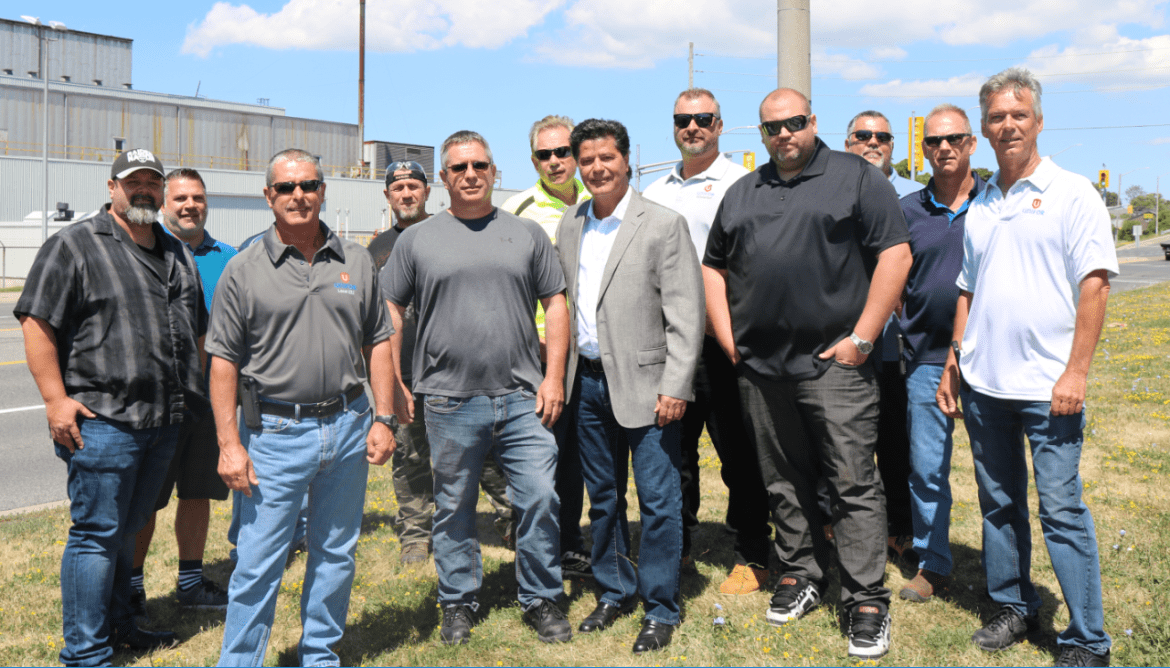
Share
Unifor is warning the U.S. Department of Commerce that tariffs on the import of automobiles and parts, being investigated under the guise of a national security threat, would devastate the entire North American auto industry if imposed.
“The suggestion that auto imports from Canada constitute a security threat to America is beyond ridiculous,” said National President Jerry Dias. “The only real danger here is to the workers and communities that depend on auto jobs on both sides of the border.”
Joined by Unifor Local 222 General Motors workers Dias addressed the threat of tariffs while speaking to media in Oshawa, Ontario on Thursday.
“Donald Trump is practicing suicide economics,” Dias said. “There are major trade discrepancies with international car makers that must be dealt with but a scorched earth policy of imposing tariffs on all auto imports into the U.S. would be disastrous.”
At a U.S. Department of Commerce public hearing on the tariff investigation, held July 19 in Washington D.C., representatives of the automotive industry, labour, corporate stakeholders and multiple governments united in opposition to the proposed duties.
David MacNaughton, Canada’s Ambassador to the U.S. and Jim Wilson, Ontario Minister of Economic Development, Job Creation and Trade were among the more than 40 speakers at the hearing.
Dias also criticized Conservative leader Andrew Scheer’s call to reconvene Parliament to rush through passage of the Comprehensive and Progressive Agreement for Trans-Pacific Partnership (CPTPP) as an additional threat to the auto sector.
“It doesn’t make a stitch of economic sense to quickly pass the CPTPP,” said Dias. ”I don’t know whose side Andrew Scheer is on but he clearly isn’t on the side of Canadian auto workers.”
Unifor has expressed concern that the CPTPP will act as a disincentive for Japanese and other foreign automakers to invest in Canada as the deal opens the domestic market to foreign imports while failing to achieve reciprocal access to international consumers.
“In the midst of an escalating trade war with the U.S. there couldn’t be a worse time to sign the CPTPP as it’s currently written,” said Dias. “Ratifying a deal that negatively affects auto and other major sectors would also set an incredibly dangerous precedent as NAFTA renegotiations continue.”
For more on Unifor’s trade agenda and to find out how you can take action visit unifor.org/peoplestrade.



